Dec 19, 2013 | Foreign Affairs, International, Profile
Developed by Katie Brown and Mark Tessler
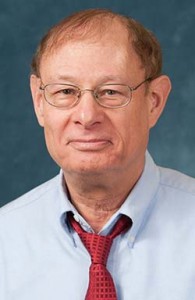 If you ask Mark Tessler about the trajectory of his work, he smiles. His career path was never planned; rather he took advantage of unexpected opportunities along the way. Among these was the chance to spend part of his undergraduate education as a student at the Hebrew University of Jerusalem and part of his graduate education as a student at the University of Tunis.
If you ask Mark Tessler about the trajectory of his work, he smiles. His career path was never planned; rather he took advantage of unexpected opportunities along the way. Among these was the chance to spend part of his undergraduate education as a student at the Hebrew University of Jerusalem and part of his graduate education as a student at the University of Tunis.
Since completing his studies, Tessler has conducted research in Tunisia, Morocco, Israel, the West Bank, and Egypt. He has also lived and taught university in several Sub-Saharan African countries.
Not surprisingly, one of Tessler’s areas of research is the Israel-Palestine conflict. Spending time in both Israel and Palestine has enabled him to witness first-hand the legitimate aspirations of both sides and has shaped his perspective on the conflict. He has published extensively on the subject. His scholarship, which emphasizes rigor as well as political and cultural sensitivity, includes articles in World Politics, the Journal of Conflict Resolution, International Studies Quarterly, and a prize-winning 1000-page book, A History of the Israeli-Palestinian Conflict. Tessler describes his approach to the conflict as “objectivity without detachment.”
Tessler’s broader research questions focus on the individual-level of analysis and investigate the normative and behavioral orientations of ordinary citizens in the Middle East and North Africa. In particular, he studies how people sort out who they are, what kind of society they want to live in, and by what kind of political system they want to be governed. Some of the findings from this research are brought together in his 2011 book, Public Opinion in the Middle East: Survey Research and the Political Orientations of Ordinary Citizens.
Currently, Tessler is working on a new and original public opinion database. With support from the Carnegie Corporation of New York, the database pulls together data from 44 nationally-representative surveys conducted in 15 countries in the Middle East and North Africa. Tessler carried out some of these surveys with support from the National Science Foundation and other foundations and agencies. Other surveys are from the Arab Barometer, which Tessler co-directs, and from the World Values Survey.
Key variables in this unique database include respondent attitudes toward a wide range of political and social issues, particularly those pertaining to governance and to Islam. Also included are major political, economic, and demographic characteristics of the country of which the respondent is a citizen. The database thus permits both separate and integrated individual-level and country-level analyses.
Though not planned, Tessler’s choice to dive into opportunities as they appeared helped to create an illustrious career. He has authored, coauthored, or edited 15 books and published over 125 book chapters and journal articles. Mark Tessler is a Center for Political Studies (CPS) Researcher and Samuel J. Eldersveld Collegiate Professor of Political Science at the University of Michigan.
Nov 26, 2013 | Profile
Developed by Katie Brown in coordination with William Zimmerman.
This post is part of a series that explores how Center for Political Studies (CPS) researchers came to their work.
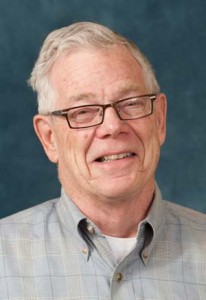 As an undergraduate at Swarthmore College, William “Bill” Zimmerman studied under Kenneth Waltz, a key figure in the development of the field of International Relations. Zimmerman then went on to complete his Ph.D. at Columbia University.
As an undergraduate at Swarthmore College, William “Bill” Zimmerman studied under Kenneth Waltz, a key figure in the development of the field of International Relations. Zimmerman then went on to complete his Ph.D. at Columbia University.
Professor Zimmerman’s first book Soviet Perspectives on International Relations 1956-1967, based on his dissertation, follows the structure of Waltz’s book Man, the State, and War. But instead of talking about philosophers, Zimmerman’s book considers the emergence of International Relations as a discipline in the U.S.S.R.
With his first book in hand, Zimmerman felt moved to do something different. He especially wanted to journey where he could both do his research and his family could accompany him. In 1970, the U.S.S.R. was not an option. Zimmerman secured a Fulbright Fellowship and ventured to Yugoslavia with his family in tow. Around this time, he also became involved with a research project focused on Jews who migrated from the U.S.S.R. This research project became Zimmerman’s initial foray into survey research.
Then, in the late 1980s, the world changed. Mikhail Gorbachev became President of the U.S.S.R. and ushered in an era of openness with glasnost and perestroika. The U.S.S.R. collapsed. And it was now possible to conduct survey research in Russia. “The impossible,” as Zimmerman puts it, “was now possible.” And so he set out to conduct surveys in Russia. What was originally intended to be a single survey in 1993 was expanded and developed into a six wave panel study of Russian elites and conducted through 2012.
Over his illustrious career, Zimmerman has written or edited eight books and published more than 60 journal articles and book chapters. Zimmerman is now retired, holding the title of Research Professor Emeritus at the Center for Political studies. He jokes that he is “basically doing the same thing now, just without getting paid.” He especially appreciates his wife’s support in this regard, chuckling while stating that “she knew what she was getting into.” Looking back on his career, Zimmerman can see how his career path changed with the times. He started out as “the guy that studied Soviet foreign policy from afar” and then became “the guy doing surveys of Russian elites in Moscow.”
Nov 19, 2013 | CLEA, Profile, Student Experiences
Developed by Katie Brown and Josue Gomez.
This is the first post in a series about students working on research projects in the Center for Political Studies (CPS). Here, we profile Josue Gomez, whose work on the Constituency-Level Elections Archive (CLEA) helped influence his career path in political science.
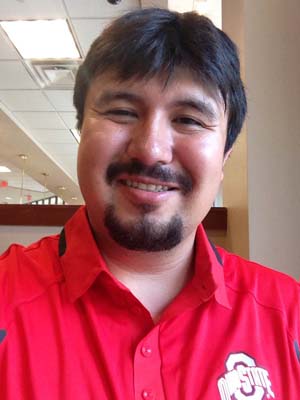 Josue Gomez was raised in a farming community in southern Idaho, the son of a Mexican-American farm worker. The current debate on immigration policy, especially the relationship between the U.S. and Mexico, piqued his interest in politics. He enrolled at Boise State University — the first in his family to attend college — and majored in political science. As part of the McNair Scholars program supporting under-represented students, Josue was required to complete a summer research program prior to graduating. Josue and his advisor, Ross Burkhart, identified the University of Michigan as a good place to apply, and Josue was accepted as part of the Student Research Opportunity Program (SROP) at Michigan. Through the SROP program, he joined the Constituency-Level Elections Archive (CLEA) project as a research assistant in the Summer of 2012.
Josue Gomez was raised in a farming community in southern Idaho, the son of a Mexican-American farm worker. The current debate on immigration policy, especially the relationship between the U.S. and Mexico, piqued his interest in politics. He enrolled at Boise State University — the first in his family to attend college — and majored in political science. As part of the McNair Scholars program supporting under-represented students, Josue was required to complete a summer research program prior to graduating. Josue and his advisor, Ross Burkhart, identified the University of Michigan as a good place to apply, and Josue was accepted as part of the Student Research Opportunity Program (SROP) at Michigan. Through the SROP program, he joined the Constituency-Level Elections Archive (CLEA) project as a research assistant in the Summer of 2012.
CLEA is a repository of detailed election results from around the world which collects outcomes from lower house elections. CLEA provides opportunities for students to be involved at all stages of the data collection process, providing valuable experience and training for them. Working on research projects can be an excellent way for students to explore whether they would like to further their career in research and academia. Many of CLEA’s alumni have gone on to attend graduate school and obtained research-oriented jobs.
As part of his responsibilities on the CLEA project, Josue was assigned to work on Latin American and a few European countries. Given his fluency in Spanish and natural inclination to learn about these countries, Josue grew a strong connection to the project. Among the countries he was assigned to work on, he was encouraged to choose one to study in more depth. Chile was the largest country in Latin America that was not yet represented in CLEA, and Josue decided that it would be valuable for CLEA to include it. As Josue studied the intricacies and results of elections in Chile, he became interested in a broader research agenda concerning political parties and democratization. Prior to the military dictatorship of Augusto Pinoche, Chile had held elections After the dictatorship was removed, Chile began to hold elections again. In his studies, Josue began to wonder how relationships between parties and an old regime (in Chile’s case, the dictatorship) influence the performance of the parties in elections during and following the transition to democracy.
At the time, Josue was a senior at Boise State University. In his work on CLEA he identified what became a fundamental question for him: How do parties succeed in foundational elections? CLEA also helped him begin to answer this question.
As a McNair Scholar, Josue published a short article based on his work with CLEA. In the 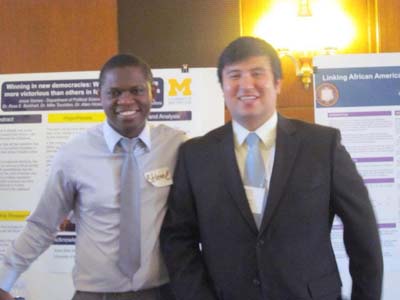 paper, Josue lays out a spectrum of parties that exist in new democracies, in order to help understand why some parties are more successful than others. Focused on Latin America, Josue finds a relationship between party alignment in older regimes and success in new elections.
paper, Josue lays out a spectrum of parties that exist in new democracies, in order to help understand why some parties are more successful than others. Focused on Latin America, Josue finds a relationship between party alignment in older regimes and success in new elections.
Josue notes that political scientists and other researchers are always looking for reliable data like that provided by CLEA. By examining the electoral rules and election results from countries around the world, researchers can discover what electoral systems work better in certain regions and in certain time frames, investigate how political parties developed or declined, and seek to understand whether and why the democratic experience is working or not.
Josue’s experience in building social science infrastructure and his own research skills in his work with CLEA laid the foundation for his McNair Scholars paper, and has also influenced his academic path. The experience has led him to pursue a Ph.D.; he is currently enrolled as a graduate student in the Department of Political Science at The Ohio State University
Sep 27, 2013 | Profile
Post developed by Katie Brown in coordination with Mike Traugott.
This post is part of a series that explores how Center for Political Studies (CPS) researchers came to their work. Here, we follow the academic path of CPS Research Professor and Professor of Communication Studies, Mike Traugott.
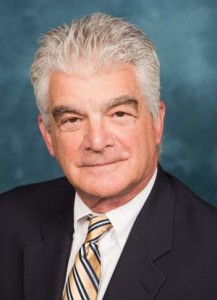 Professor Traugott’s career began at Princeton University. While an undergraduate studying political science, he served as a research assistant for Dr. George Gallup, founder of the prominent polling group the Gallup Organization. His senior thesis advisor, Professor Stanley Kelley, urged him to attend graduate school at the University of Michigan. Traugott’s intention was to learn more about the field and then return to working for Gallup, with no thought of becoming a university-based researcher, let alone a college professor.
Professor Traugott’s career began at Princeton University. While an undergraduate studying political science, he served as a research assistant for Dr. George Gallup, founder of the prominent polling group the Gallup Organization. His senior thesis advisor, Professor Stanley Kelley, urged him to attend graduate school at the University of Michigan. Traugott’s intention was to learn more about the field and then return to working for Gallup, with no thought of becoming a university-based researcher, let alone a college professor.
While at the University of Michigan, Traugott worked with Warren Miller – of Campbell, Converse, Miller, & Stokes fame – on the seminal study of The American Voter. Beginning in 1968 and through the 1970s, Miller and Traugott helped ABC News develop their campaign coverage. The project took place amidst innovation in polling. First, telephone interviewing evolved to become an industry standard. And second, television networks partnered with major daily newspapers to conduct polls. Traugott was fascinated by and part of how public opinion evolved into a newsworthy topic.
Trained as a political scientist and with deep experience in polling, Traugott became a leading expert on survey methodology, public opinion, and voting technology. He teaches extensively, and his research has resulted in the publication of 12 books and 100 articles and chapters.
Sep 16, 2013 | Profile
Post developed by Katie Brown in coordination with Rosemary Sarri.
This post is part of a series that explores how Center for Political Studies (CPS) researchers came to their work. Here, we trace the trajectory of CPS, School of Social Work, and Women’s Studies Professor Emerita Rosemary Sarri.
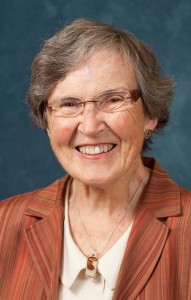 A strong Scandinavian influence could be felt in the progressive causes and commitment to community development in Sarri’s native rural Minnesota. Though her family had little money, Sarri and her siblings were urged to attend college. Sarri went onto attend the University of Minnesota, graduating with deepened commitment to social engagement but no clear sense of a career path.
A strong Scandinavian influence could be felt in the progressive causes and commitment to community development in Sarri’s native rural Minnesota. Though her family had little money, Sarri and her siblings were urged to attend college. Sarri went onto attend the University of Minnesota, graduating with deepened commitment to social engagement but no clear sense of a career path.
Sarri spent time working as a social worker in a settlement house, with gangs, and for a 4-H club. The political and social backdrop of the Civil Rights Movement and Feminist Movement strengthened her dedication to justice. Sarri soon returned to the University of Minnesota to complete her Masters in Social Work. It was during this time that she zeroed in on a question: How are we going to foster our young adult population?
Seeking answers, Sarri moved onto complete a Ph.D. in Social Work and Sociology at the University of Michigan. Sarri continued to work in academia. Her longitudinal studies especially reveal two troubling facts. First, kids in the child welfare system are the same kids who drift into the justice system. Second, this problem is getting worse. Her research brings awareness to this under-served part of society.
In addition to research, Sarri combats these problems on the ground. She has worked directly with child offenders in a variety of contexts, served on several presidential commissions, and worked to build infrastructures for child welfare systems on every continent except Antarctica.
Despite witnessing the entrenched and growing nature of these issues, Sarri remains optimistic. Though she understands that it would be easy to cower in the face of this societal blight, a simple question drives her to fight for the lives of children: How can I help make this better?
Aug 26, 2013 | Profile
Post developed by Katie Brown in coordination with Maris Vinovskis.
This is the first post in a series that explores how Center for Political Studies (CPS) researchers came to their work. And our first profile tells the fascinating path of CPS researcher, Professor of Public Policy, and Bentley Professor of History Maris Vinovskis.
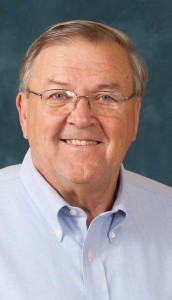 Born in war torn Latvia in 1943, Vinovskis and his family were forced out by the impending Soviet invasion. Destined for Dresden, the bombings rerouted them to former Czechoslovakia. Unsafe there, too, the family made it to an American zone in Munich, where they spent 5 years in a camp of mostly Latvians displaced by the war. The Vinovskis family then moved to the United States, settling in rural Blair, Nebraska. Vinovskis started first grade with his sister. Knowing no English, “We sat through most of the classes without any idea of what was being discussed.” By second grade, Vinovskis understood the language and excelled, with the help of dedicated teachers. In 1957, his father, a lawyer back in Europe, took a job as a meatpacker and moved the family to Omaha. Vinovskis shares, “The continued economic challenges facing our family aroused my early interest in public policy, especially on how to help low-income families.”
Born in war torn Latvia in 1943, Vinovskis and his family were forced out by the impending Soviet invasion. Destined for Dresden, the bombings rerouted them to former Czechoslovakia. Unsafe there, too, the family made it to an American zone in Munich, where they spent 5 years in a camp of mostly Latvians displaced by the war. The Vinovskis family then moved to the United States, settling in rural Blair, Nebraska. Vinovskis started first grade with his sister. Knowing no English, “We sat through most of the classes without any idea of what was being discussed.” By second grade, Vinovskis understood the language and excelled, with the help of dedicated teachers. In 1957, his father, a lawyer back in Europe, took a job as a meatpacker and moved the family to Omaha. Vinovskis shares, “The continued economic challenges facing our family aroused my early interest in public policy, especially on how to help low-income families.”
Excellence in academics and athletics led to his admission to Wesleyan University with a National Merit Scholarship. Vinovskis ultimately pursued a degree in History, with an interest in Public Policy but no clear career direction. In 1965, he hitchhiked to Alabama to participate in the March on Selma, but was arrested en route in Montgomery at a peaceful NAACP demonstration. After a week of hunger striking in jail, he was bailed out. Vinovskis views this event as seminal, focusing his ambition on fostering social justice and helping the disadvantaged.
Vinovskis moved on to complete a Ph.D. in History at Harvard University. He and his wife Mary chose to forgo upscale Cambridge living in favor of working class Somerville, where he joined the NAACP and the Somerville Racial Understanding Committee, and started working for the newly elected mayor – his first official government position. In writing his dissertation on the late eighteenth-century and antebellum decrease in Massachusetts birth rates, Vinovskis encountered the issue of education. He uncovered a significant decline in preschool enrolment between 1840 and 1860, corresponding to a popularized belief that early cognitive stimulation led to insanity!
After a faculty position at the University of Wisconsin Madison, Vinovskis joined the History Department and Institute for Social Research at the University of Michigan. Here, he has pursued research in education history, demographic and family history, antebellum insane asylums, and federal abortion funding. He has also served as the Deputy Staff Director to the U.S. House Select Committee on Population in 1978 and was a consultant on population and adolescent pregnancy issues in the U.S. Department of Health, Education, and Welfare in the early 1980s. He worked in the U.S. Department of Education in both the George H.W. Bush and Bill Clinton administrations on questions of educational research and policy. He also testified before six House and Senate committees about education and served on independent review panels for Goals 2000 and No Child Left Behind.
Vinovskis has published ten books, edited seven books, and written over 100 scholarly essays. He received a Guggenheim fellowship and was elected to the National Academy of Education, the International Academy of Education, a fellow to the American Educational Research Association, and President of the History of Education Society.
As Vinovskis says, “Education always played a very important role in my life.” The very education that propelled him from an immigrant life in rural Nebraska to elite student status became the focus of his academic research and government service.
 If you ask Mark Tessler about the trajectory of his work, he smiles. His career path was never planned; rather he took advantage of unexpected opportunities along the way. Among these was the chance to spend part of his undergraduate education as a student at the Hebrew University of Jerusalem and part of his graduate education as a student at the University of Tunis.
If you ask Mark Tessler about the trajectory of his work, he smiles. His career path was never planned; rather he took advantage of unexpected opportunities along the way. Among these was the chance to spend part of his undergraduate education as a student at the Hebrew University of Jerusalem and part of his graduate education as a student at the University of Tunis.






